IMITATION OF LIFE (1934)
A white widow and her daughter take in a black housekeeper and her fair-skinned daughter, and the two women start a successful business but face familial, identity, and racial issues along the way.
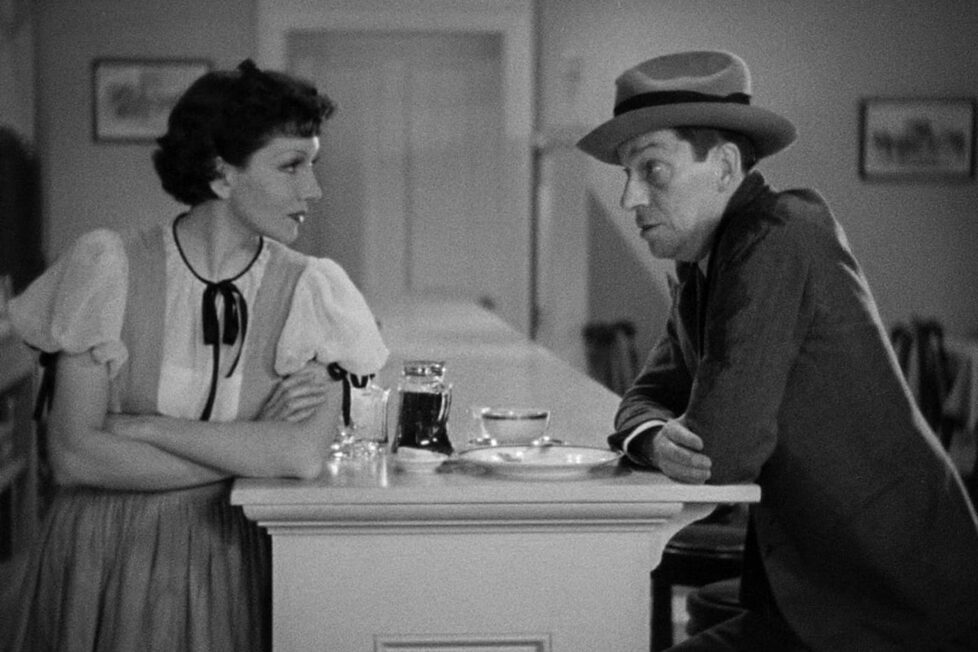
A white widow and her daughter take in a black housekeeper and her fair-skinned daughter, and the two women start a successful business but face familial, identity, and racial issues along the way.


Imitation of Life is a title that, for many, conjures images of the gorgeous technicolour of Douglas Sirk’s 1959 melodrama; a film enrobed in autumnal reds and oranges, all brought back to that evocative and delicate title. Lesser known and celebrated than Sirk’s film is John M. Stahl’s 1934 adaptation of Fannie Hurst’s same novel from 1933, being the more sober and simplistic of the two versions.
It’s unfair to compare the two films—different eras, authorial voices, and dramatic changes in the studio systems (not to mention societal differences), make the two works distinct and separate. If Sirk’s movie is the uncontested masterpiece (and it is), then what does that make Stahl’s film? Forgotten, largely. Thankfully, Criterion’s new Blu-ray release shines a light on an imperfect but important work.
Bea Pullman (Claudette Colbert) is a widow struggling to keep up her late husband’s business and keep food on the table for her young daughter, Jessie (Marilyn Knowlden). Colbert was a newly minted movie star at the time of the film’s release and won ‘Best Actress’ at the Academy Awards the same year, for It Happened One Night. And while she possesses a light and graceful touch that keeps Stahl’s film buoyant and often playful, her casting is quietly inspired; she has the face of a haunted woman. Her pale complexion and thin, high eyebrows contrast against a dark mane of hair, often topped with a large, black sunhat, or rather, an anti-sunhat. She looks as if she never left her husband’s funeral, and mourning looked so chic.
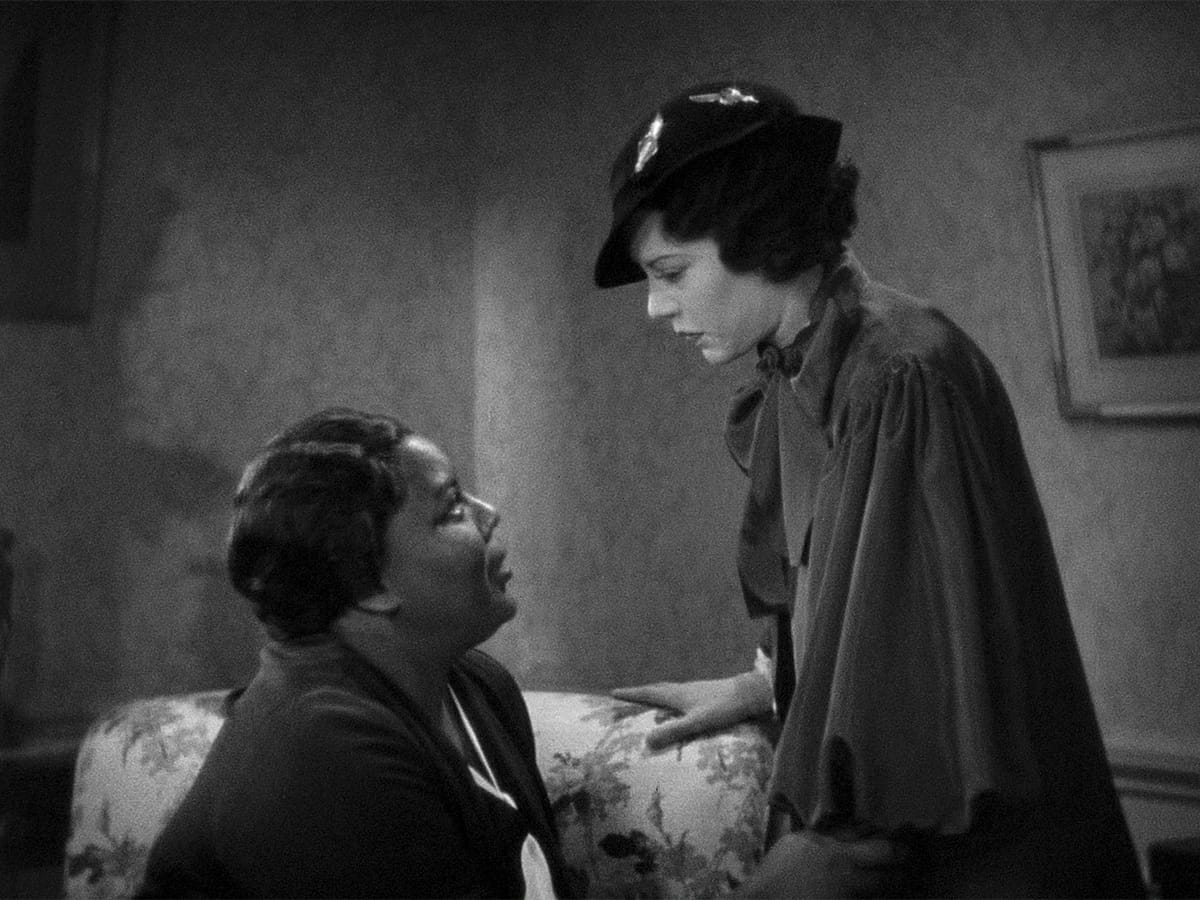
Colbert is simply magnetic as Bea, both forceful and meek. Stahl frames her in the empty doorways of her home, rooms that are far too large for her. But in her forthrightness and confidence, she houses a sting in her tail; a wit and quickness that suggests she’s doing just fine on her own. She knows how to survive, even if she doesn’t have the time to flourish.
One morning as she makes breakfast for her daughter, a knock at the kitchen door signals the arrival of the person who, directly and indirectly, will be responsible for every success of Bea going forward. She may not know it yet, but Stahl does; in the first of his heroically romantic pull-ins, he glides his camera towards the face behind the screen door, a friendly, instantly familiar figure in tatty old rags.
Delilah (Louise Beavers) is looking for a job she saw advertised for a housekeeper, only she’s got the wrong house. If Bea can laugh about Delilah’s mistake, then Stahl takes her more seriously: in his framings, which give off the feeling of a portrait, she’s proud and beautiful. And as she moves into the kitchen, he keeps the two women in the frame together. Perhaps not societally or financially, but these women are two sides of the same coin.
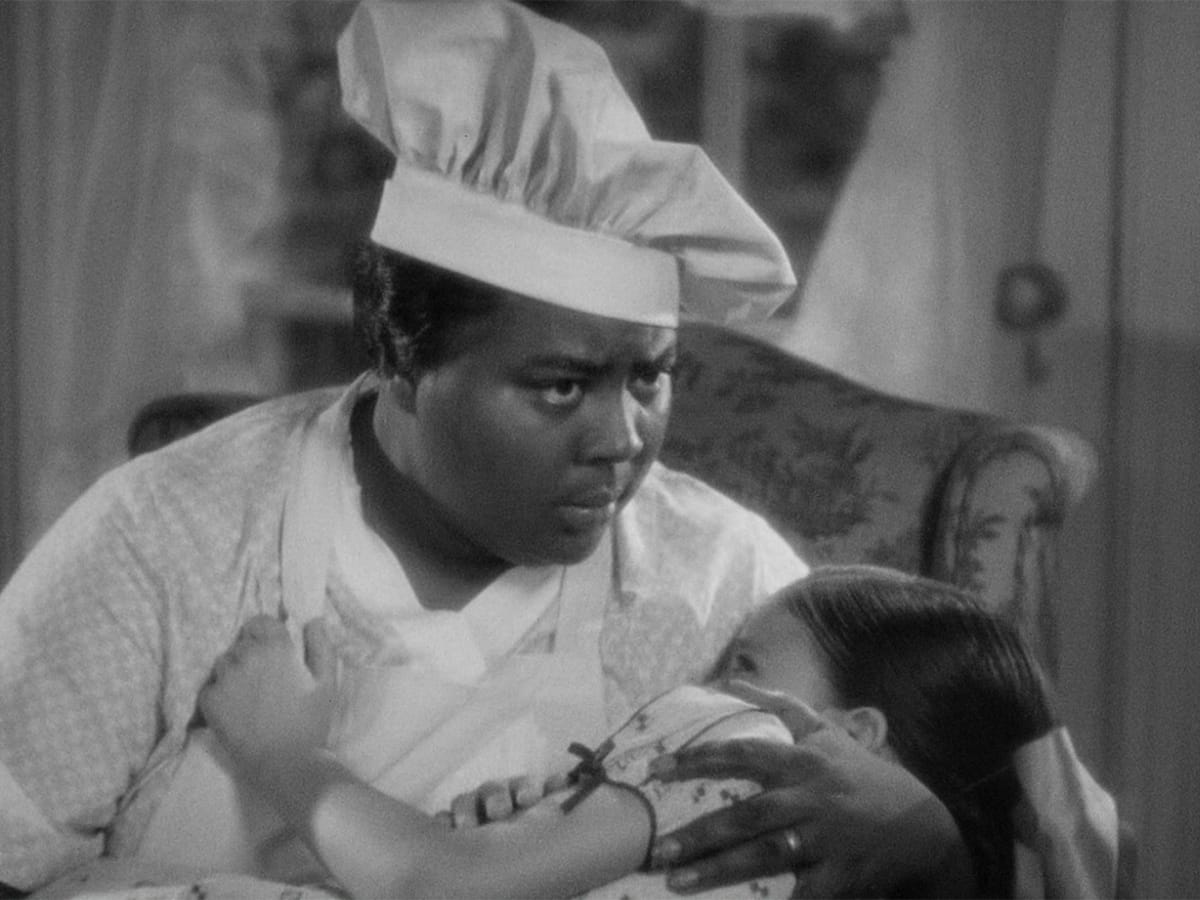
They are both definitely charming, we soon learn. Delilah talks her way into a job, showing Bea she could do with help herself, and promising that she and her daughter, Peola (Doroth Black), won’t want anything more than room and board. Bea, with a great eye for business and the gift of gab, talks her way into being rented an empty store. Delilah has an old family recipe for pancakes and Bea immediately spots their potential as a hot-ticket item for diners, and pretty soon taking in Delilah has paid off for Bea. Stahl keeps an almost manic pace at times, the dialogue singing with a hint of Howard Hawkes’ zippiness, and it’s so easy to be caught up in Bea’s whirlwind of ideas.
Stahl almost invites the audience to miss the exploitation inherent in this partnership, before he offers up moments of crushing reality. Bea, as fond as she surely is of Delilah, is her employer. Delilah is a black woman in 1930s New York and isn’t afforded the opportunity to be a businesswoman. Nor is she given much of an option by Bea in selling the pancakes in the first place. “You’re my employee, and I’m white and I know best” are the words that Bea’s smile seems to hide.
It’s tempting to view Delilah as a stereotype of the ‘mammy’ figure of the time; the happy-go-lucky black woman full of family sayings and almost supernatural maternalism. But in Louise Beavers’ performance, there’s a hidden sadness, as if her eyes were always about to well up with tears. In these lives, where everything is a show, a performance, then so too can Delilah be read as ‘performing’ for Bea. Because, no matter how she has to debase herself, she knows that in order to get the job with Bea in the first place she has to be the mammy that coddles and cooks, and reaffirms to white people their place in the world. She has to be friendly, harmless and bumbling, even if she isn’t. And then there is the crushing reality.
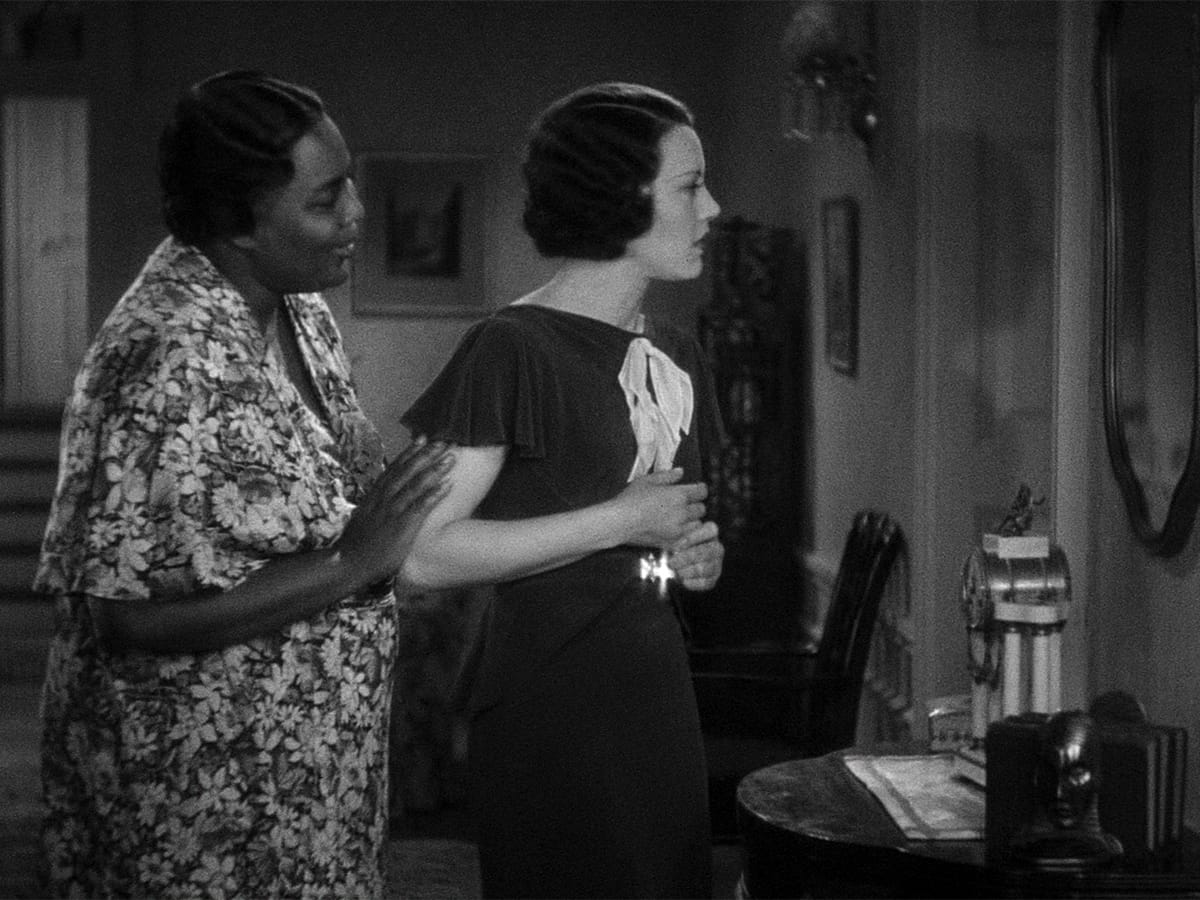
In her new pancake restaurant, Bea talks to an artist about the image she has envisioned for the logo. She calls Bea away from the windows, where she is cleaning. “Smile!” she demands of her. “No, really smile!” Stahl’s camera moves in close again, Delilah shot in portrait with an unnatural, open-mouthed smile on her face, unblinking and unmoving. A mascot. It’s agonizing, even more so because Bea doesn’t seem to realise what she’s doing. It is not done with malice in mind, but the dehumanising is the same regardless of intention.
Delilah has to endure and is committed entirely to keeping the people around her happy—otherwise she’ll be the lightning rod for their anger. But her daughter, Peola, isn’t giving in. Stahl drifts through time and years into the business, light-skinned Peola is now 10 years old and runs crying to Delilah because she’s desperate to pass for white. “It’s because you’re black! You made me black!” she sobs, as Delilah tries to console her. Jessie has caused the tears, by stating that Peola is black. “What a shameful thing to say!” says Bea, demanding Jessie apologise to Peola.
To everyone there, being black is something to be ashamed of. Though Bea knows Delilah is black, she’s doing what so many people do in order to contort their prejudices. She’s implying, somehow, that Delilah is ‘one of the good ones’, and that by being good she’s somehow not really black. Peola, ostracised by her peers and with a life ahead of her of picking up after white people, tries to pass for white at school. Delilah doesn’t know this when she brings Peola her raincoat while at school. “I’m sorry ma’am, I have no coloured children in my class”, the teacher responds. “That’s her right there”, Delilah says. Peola covers her face with a book and walks out with her head down. Her illusion has been shattered. “I didn’t know she was coloured” whisper the children as she goes.
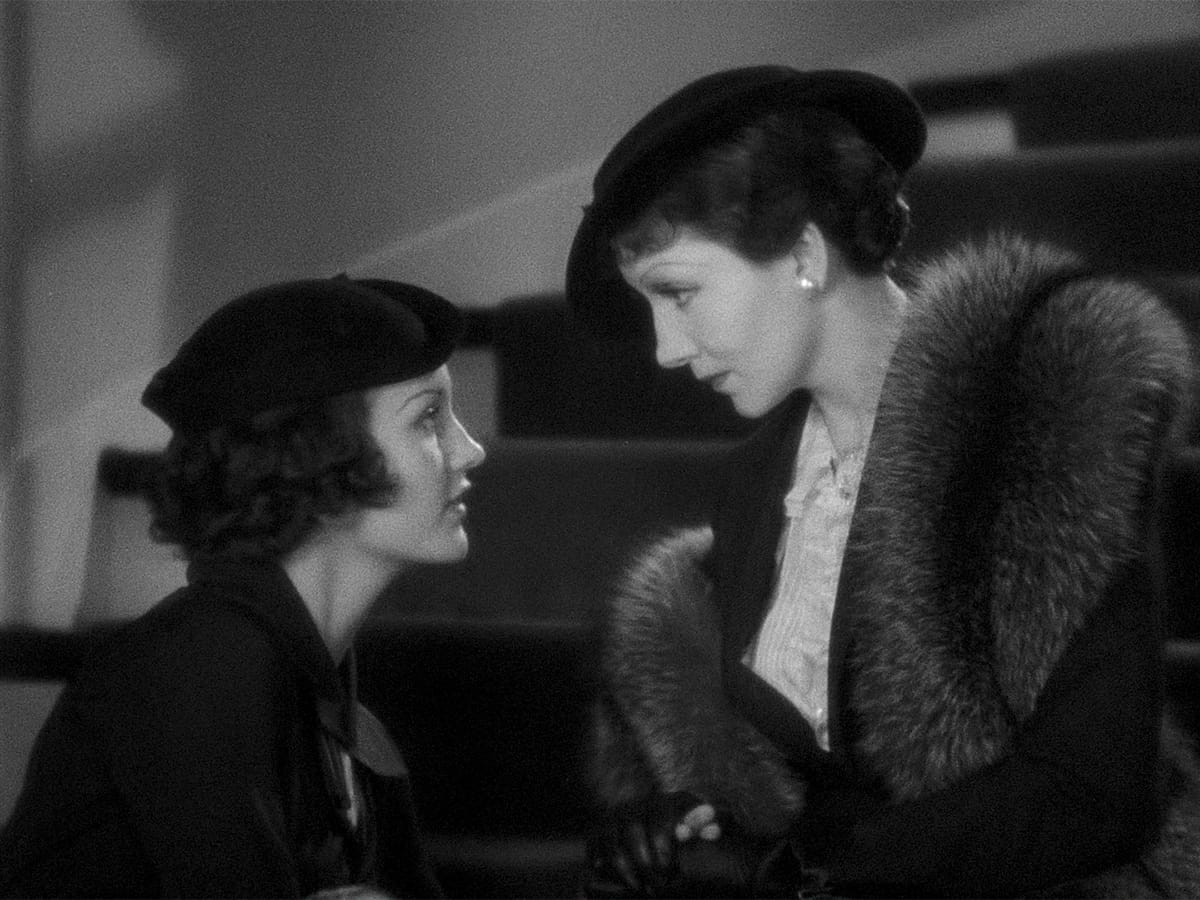
The pain surrounding Peola and Delilah comes entirely from their treatment by white society. It’s the hatred, exclusion, and powerlessness that rob them of their pride in who they are. Instead of turning their anger outwards, they turn it in on themselves—Peola is furious as if she’s been cursed simply by being born. And all Delilah can do is try to remove that anger the only way she knows how: by loving her daughter for who she is. Stahl’s film is all the more tragic for the acknowledgement that love isn’t enough.
The film posits parallels between Bea and Delilah, and as she gets richer and sells the pancake business for millions of dollars, there’s a growing unease, as if the life she’s leading is a false one. Perhaps the guilt of knowing it’s Delilah’s food that’s got her to where she has is now dawning on her. But here, the film begins to falter. Though it’s ultimately a stronger work for not giving in to manufactured standoffs and arguments, as the years pass in the film, it finds a strange focus on a romantic plot that adds little and only takes time away from what is most interesting.
The relationship between Bea and Delilah is loaded with internal conflict and has plenty of room for dramatic tension, but the film instead moves onto a love triangle story, wherein Bea and a now-18-year-old Jessie both fall in love with a sophisticate named Steve (Warren William). The lightheartedness of the film is cleverly switched in its first hour, pulling it out of the way to reveal the ugliness under the surface. But the awkward return to it later on simply doesn’t work, as we know there are far more important things going on. As Delilah is relegated to a sickbed and as Jessie flirts with Steve, it feels a bit of a cop-out, as if the nervousness of the studio required anything potentially controversial to be counterbalanced by a frivolous romance.
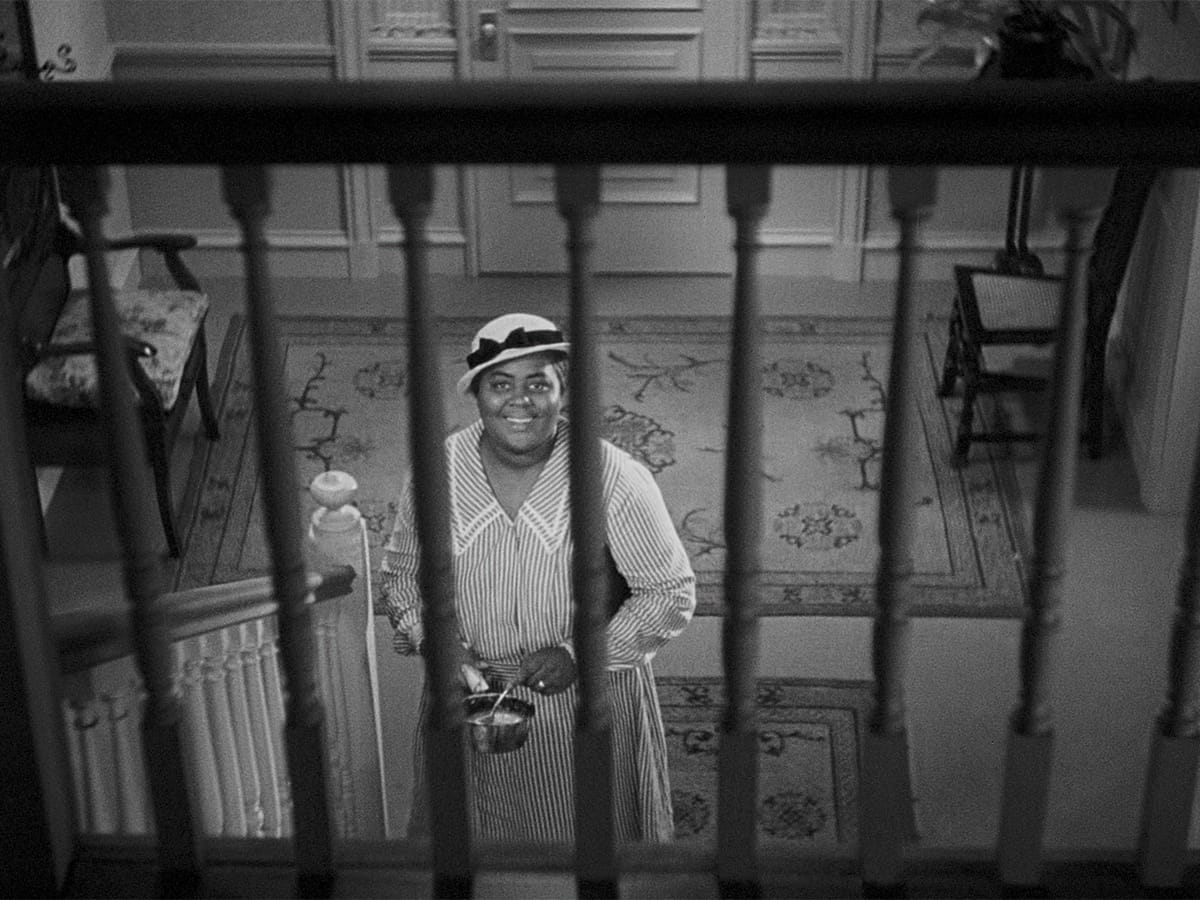
The film did in fact have trouble in production and it can be felt throughout. The Hays Code was strict on matters of race and class and the film barely passed its stringent rules. The film’s screenplay was cut to pieces, with crucial sections removed entirely so as not to upset censors at the Production Code Administration. It’s a miracle it was released with any mention of race at all. One more pass through the censors and perhaps they’d have removed any racial components and the whole thing would’ve been a bawdy rom-com instead. Perhaps Delilah would have been there to offer up an occasional bit of homespun wisdom to make the audience smile with condescending comfort. Hell, maybe she could have sung a song for the family!
Despite the disappointing wandering of the story, Stahl—who fought for the integrity of the picture—brings a rawly emotional ending that does its best to wave away the previous half-hour of the film. As I stated earlier, it’s imperfect and important. It’s important to remember just how suppressive businesses can be when they deem a work of art dangerous. Not to the public well-being, of course, but dangerous to their financial security. And it’s an important reminder that despite the suppressors, there were writers, actors, directors—people—who cared about their art, and who knew, even in 1934, just how monstrous and eviscerating racism is.
It’s convenient to label all people of the past as simple-minded or unenlightened. But to do so would omit oneself from the possibility that we’re also flawed, and it’s an attitude that draws a harsh line between then and now, discarding the past as an imperfect version of today. Imitation of Life is as precise an argument as can be made that the past has much to teach us, that film history—even when butchered by studios—is rich with works that demand to be seen. Just as giving in to the imitation is the ultimate crushing of the human spirit, ignoring the past and its relevance today is tragic, crushing and dangerous in its own right.
USA | 1934 | 111 MINUTES | 1.37:1 | BLACK & WHITE | ENGLISH

Criterion’s new 4K restoration of the film is beautiful. Though Sirk’s version of the film is lush and expressive, Stahl’s film has a simple black-and-white elegance which shines in this version. The contrast is particularly striking and the image is crisp with natural grain kept from the original prints. The monaural soundtrack is good, with the Heniz Roemheld’s music score taking centre stage in the mix. The extras on the disc are a little slight by Criterion’s standard, but the excellent restoration is the main draw.

director: John M. Stahl
writer: William J. Hurlbut (based on the novel by Fannie Hurst).
starring: Claudette Colbert, Warren William, Rochelle Hudson, Ned Sparks, Henry Armetta, Jane Withers, Alan Hale, Louise Beavers, Fredi Washington & Franklyn Pangborn.
